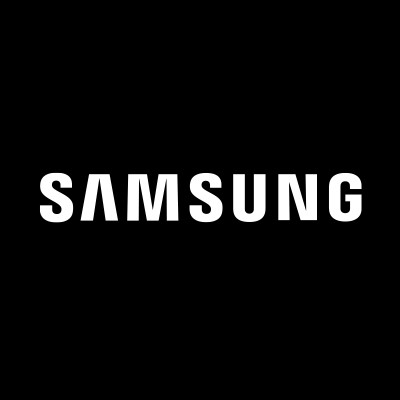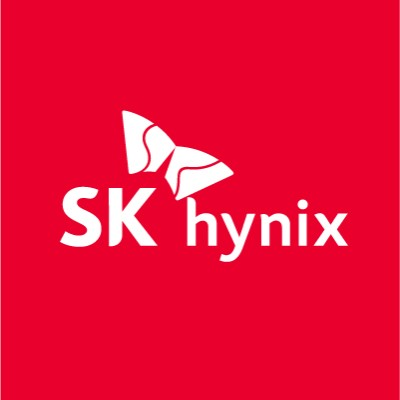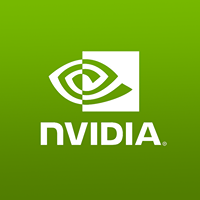Samsung's Battle for AI Memory: A Race Against Time and Rivals
January 9, 2025, 4:33 am

Location: United States, California, San Francisco
Employees: 10001+
Founded date: 1938
Total raised: $6.4B

Location: United States, California, San Jose
Employees: 10001+
Founded date: 1983
Total raised: $450M
Samsung Electronics is in a fierce battle. The stakes are high, and the competition is fierce. The company, a titan in the memory chip industry, is grappling with significant challenges. Its latest quarterly results fell short of expectations, sending ripples through the market. Yet, amidst the storm, there’s a glimmer of hope. Nvidia’s CEO, Jensen Huang, has expressed confidence in Samsung’s ability to overcome its production hurdles. But can Samsung rise to the occasion?
The world of memory chips is evolving rapidly. High-bandwidth memory (HBM) is the new gold standard, essential for powering artificial intelligence (AI) systems. Nvidia’s chips are at the heart of this revolution. However, Samsung has lagged behind its rivals, particularly SK Hynix. This delay has cost Samsung dearly, both in market share and investor confidence.
In the last quarter, Samsung reported an operating profit of 6.5 trillion won, significantly below analysts’ expectations of 8.96 trillion won. Revenue also fell short, coming in at 75 trillion won. The numbers tell a story of struggle. Samsung’s stock, however, saw a slight uptick after Huang’s remarks at the CES conference in Las Vegas. Investors are cautiously optimistic, but the road ahead is fraught with challenges.
Samsung’s troubles stem from its hefty research and development expenses. The company is investing heavily to catch up in the AI market. This includes front-end capacity expansion costs, a necessary step to compete with nimble rivals like SK Hynix and Micron Technology. The pressure is mounting. Samsung’s conventional semiconductor chips for PCs and mobile devices are facing declining demand. Meanwhile, its smartphones and home appliances are caught in a price war with aggressive Chinese manufacturers.
The competition is relentless. SK Hynix is not sitting idle. The company is ramping up its capital expenditures to meet the surging demand for AI infrastructure. It has announced plans for a new memory chip complex and advanced packaging facilities in Indiana. This proactive approach has allowed SK Hynix to post record profits, while Samsung struggles to maintain its footing.
Samsung’s challenges are compounded by its organizational culture. The company has acknowledged the need for fundamental changes. Last year, it laid off thousands of workers in a bid to streamline operations. The message is clear: Samsung must adapt or risk being left behind. The tech giant is under pressure to not only innovate but also to revamp its internal processes.
Huang’s confidence in Samsung is a double-edged sword. While it offers a glimmer of hope, it also highlights the urgency of the situation. Samsung must engineer a new design for its HBM products. The clock is ticking. The AI market is expanding rapidly, and every moment counts. Nvidia’s chips require more memory, and Samsung needs to prove it can deliver.
The upcoming launch of Samsung’s latest Galaxy smartphone lineup is another critical moment. The company promises to leverage AI in its new devices. This could be a turning point. If Samsung can successfully integrate AI into its products, it may regain some lost ground. However, the competition will be fierce. Rivals are not waiting for Samsung to catch up.
Investors are watching closely. The AI memory market is a goldmine, and billions of dollars are at stake. Microsoft’s recent announcement of an $80 billion investment in data centers underscores the urgency. Companies are racing to build the infrastructure needed for AI, and memory chips are a crucial component. Samsung must position itself as a key player in this space.
The challenges are daunting, but Samsung has a history of resilience. The company has weathered storms before. It has the resources and expertise to turn things around. However, it must act swiftly and decisively. The AI memory market is unforgiving. Companies that fail to innovate risk being left in the dust.
In conclusion, Samsung is at a crossroads. The company faces significant challenges in the AI memory market. While Nvidia’s CEO has expressed confidence in Samsung’s ability to overcome its production hurdles, the reality is that time is of the essence. The competition is fierce, and the stakes are high. Samsung must innovate, adapt, and execute flawlessly to reclaim its position as a leader in the memory chip industry. The race is on, and every second counts.
The world of memory chips is evolving rapidly. High-bandwidth memory (HBM) is the new gold standard, essential for powering artificial intelligence (AI) systems. Nvidia’s chips are at the heart of this revolution. However, Samsung has lagged behind its rivals, particularly SK Hynix. This delay has cost Samsung dearly, both in market share and investor confidence.
In the last quarter, Samsung reported an operating profit of 6.5 trillion won, significantly below analysts’ expectations of 8.96 trillion won. Revenue also fell short, coming in at 75 trillion won. The numbers tell a story of struggle. Samsung’s stock, however, saw a slight uptick after Huang’s remarks at the CES conference in Las Vegas. Investors are cautiously optimistic, but the road ahead is fraught with challenges.
Samsung’s troubles stem from its hefty research and development expenses. The company is investing heavily to catch up in the AI market. This includes front-end capacity expansion costs, a necessary step to compete with nimble rivals like SK Hynix and Micron Technology. The pressure is mounting. Samsung’s conventional semiconductor chips for PCs and mobile devices are facing declining demand. Meanwhile, its smartphones and home appliances are caught in a price war with aggressive Chinese manufacturers.
The competition is relentless. SK Hynix is not sitting idle. The company is ramping up its capital expenditures to meet the surging demand for AI infrastructure. It has announced plans for a new memory chip complex and advanced packaging facilities in Indiana. This proactive approach has allowed SK Hynix to post record profits, while Samsung struggles to maintain its footing.
Samsung’s challenges are compounded by its organizational culture. The company has acknowledged the need for fundamental changes. Last year, it laid off thousands of workers in a bid to streamline operations. The message is clear: Samsung must adapt or risk being left behind. The tech giant is under pressure to not only innovate but also to revamp its internal processes.
Huang’s confidence in Samsung is a double-edged sword. While it offers a glimmer of hope, it also highlights the urgency of the situation. Samsung must engineer a new design for its HBM products. The clock is ticking. The AI market is expanding rapidly, and every moment counts. Nvidia’s chips require more memory, and Samsung needs to prove it can deliver.
The upcoming launch of Samsung’s latest Galaxy smartphone lineup is another critical moment. The company promises to leverage AI in its new devices. This could be a turning point. If Samsung can successfully integrate AI into its products, it may regain some lost ground. However, the competition will be fierce. Rivals are not waiting for Samsung to catch up.
Investors are watching closely. The AI memory market is a goldmine, and billions of dollars are at stake. Microsoft’s recent announcement of an $80 billion investment in data centers underscores the urgency. Companies are racing to build the infrastructure needed for AI, and memory chips are a crucial component. Samsung must position itself as a key player in this space.
The challenges are daunting, but Samsung has a history of resilience. The company has weathered storms before. It has the resources and expertise to turn things around. However, it must act swiftly and decisively. The AI memory market is unforgiving. Companies that fail to innovate risk being left in the dust.
In conclusion, Samsung is at a crossroads. The company faces significant challenges in the AI memory market. While Nvidia’s CEO has expressed confidence in Samsung’s ability to overcome its production hurdles, the reality is that time is of the essence. The competition is fierce, and the stakes are high. Samsung must innovate, adapt, and execute flawlessly to reclaim its position as a leader in the memory chip industry. The race is on, and every second counts.
